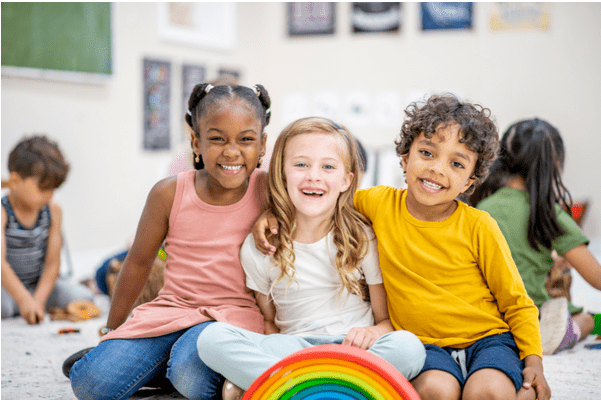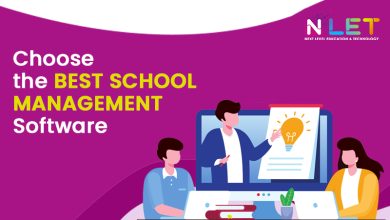
Kindergarten marks an exciting new chapter as children step into formal schooling. However, it can also be an anxious time for parents and students entering unfamiliar terrain. By understanding what to expect and strategically developing essential skills, families can set the stage for positive outcomes stretching beyond foundational years. Let’s walk through a practical roadmap simplifying this transition while spotlighting the best schools in Madurai excelling in early education.
What is Kindergarten?
Kindergarten is the first year of formal schooling in India, spanning ages 3-6 years, through play-based activities that nurture curiosity rather than purely academic goals. Students typically attend half-day sessions focusing on:
- Social skills like sharing, listening, and cooperation
- Early literacy via stories, letter recognition
- Foundational maths concepts involving numbers, shapes
- Developing motor skills through interactive games
- Fostering creativity via art, music, movement
The word Kindergarten draws from the German term for “children’s garden,” encapsulating this exploratory spirit. Leading schools incorporate such holistic development, laying solid grounds for later grades.
Importance of Kindergarten
Many parents wonder if investing in quality schools for Kindergarten is truly essential given children’s malleable nature. However, research confirms aptly stimulating young minds during pivotal windows crucially expands potential. Kinder kids also display:
- Enhanced social competencies and emotional intelligence
- Higher-order thinking abilities aiding complex subjects later
- Greater resilience in navigating new environments
- Stronger executive function underpinning focus and memory
- Higher educational attainment in teenage and adult years
Therefore, selecting optimal Kindergarten programs boosts lifelong skills.
How to get kids ready for Kindergarten
While children require little formal prepping before Kindergarten, families play a key role in:
-
Nurturing Core Life Skills
Actively build daily habits fortifying essential abilities like dressing independently, maintaining hygiene, regulating emotions, articulating needs verbally, following instructions, sharing toys, and showing kindness. Guide children without expecting perfection. Regularly affirm good faith efforts.
-
Fostering Self-Help Abilities
Cultivate autonomy around simple tasks like unzipping lunch boxes, correctly gripping pencils, using safety scissors, or wiping spills so children feel capable of managing daily needs without relying overly on teachers. Such confidence nurtures resilience.
-
Discussing What to Expect
Have age-appropriate conversations about welcoming new friends, playing games together, listening to teachers, and learning fun subjects each morning before going home to family. Convey school as a secure hub for adventure, sparking curiosity.
-
Reading Diverse Stories
Share picture books about starting Kindergarten to familiarize yourself with the scenarios, expectations, and emotions involved. Represent diverse characters overcoming early jitters through kindness and courage. Relatable stories build empathy and resilience.
-
Visiting Schools Beforehand
Tour campuses with enrollment prospectuses so children familiarize themselves with the environments beforehand while clarifying any queries. Gently navigate anxieties by reiterating teachers as caring guides. If possible, connect incoming students.
-
Establishing Optimistic Mindsets
Children intuitively emulate parental mindsets. Avoid framing school as punitive or diminishing family time. Instead, articulate education as enabling meaningful relationships, new wonders, and brighter futures. Their optimism impacts outcomes.
What do children learn in Kindergarten?
While individual teaching techniques apply, most quality Kindergarten programs entail the following:
-
Social and Emotional Learning (SEL)
Kids navigate new dynamics, emotions, and behaviors. So SEL gets priority across listening, communicating needs, managing feelings, and resolving differences respectfully.
-
Early Literacy & Language
Multisensory methods build alphabet recognition, phonemic awareness, sight word vocabulary, conversational abilities, and storytelling pleasure. This strengthens reading-writing foundations.
-
Foundational Math Concepts
Through real-world examples, games, and manipulatives, children intuitively grasp numbers, patterns, shapes, comparisons, ordering objects, and mathematical thinking.
-
Introduction to Sciences
Interactive experiments spark curiosity about changes in matter, seasons, plants, animals, and fundamental scientific concepts through a play-based approach.
-
Arts, Music, and Culture
Creative channels like visual arts, dance, drama, and music education instill holistic development, cultural exposure, and divergent thinking.
As evident, a progressive curriculum goes beyond academics to uplift humanity. Through balanced early childhood programs, schools deliver powerful, real-world benefits, amplifying success over lifelong horizons.
Conclusion
Foundational years of learning are the crucial building blocks to future success. As evident, a progressive curriculum goes beyond academics to uplift humanity. Through balanced early childhood programs, schools deliver powerful, real-world benefits, amplifying success over lifelong horizons.




